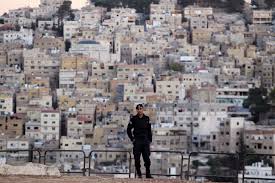The risk of political isolation
The ever dynamic geopolitics of the Middle East have been particularly fluid recently. Since the recent visit to Riyadh by President Trump, which included a summit and announcement of an anti-terrorism coalition, Saudi Arabia has positioned itself as the main political protagonist in the region.
If Saudi Arabia is serious about taking the initiative for real progressive reform within the Islamic world, then there is hope for change. However, it will not be easy, especially given the internal politics that the ruling class in Saudi is facing.
Separating the religious state and the nation state is the only real way to end the continuous official exploitation of religion. A clear division between the religious mandate as the custodian of the two holy mosques and the King of Saudi Arabia’s mandate as leader of the state is required. Religion must be depoliticized in order for an independent nation state in Saudi Arabia.
This would also mean that the Sunni Islam community would have a single interlocutor, who is also the custodian of the two holy mosques. This clear division could also create a clearer religious identity and legitimacy for the custodians.
In the meantime, we are also seeing normalization of relations between Israel and some Arab countries. The Israeli Prime Minister, Binyamin Netanyahu has referred to this on two different occasions recently. Firstly he said that Israel is more interested in peace with Arab countries. Secondly, when he welcomed President Trump to Israel, he commented that he looks forward to the day when a plane could do the same route that President Trump did but directly go from Jerusalem to Riyadh, rather than having to route through a third country.
The increasing normalization of Israeli-Arab relations and the potential for an exclusive group representing the Sunni Muslim community, combined would have wider implications across the region and the world. In particular it could politically isolate some countries and reduce their influence.
Jordan is one of the countries that could be affected by these developments. Sovereignty over al Aqsa Mosque in Jerusalem could stir competition and rivalry among Muslim political system. We saw the potential for this in the recent issues as several groups claimed to have influenced the Israeli decision to reopen the mosque.
Jordan’s strategic geography has always been an advantage, but clever strategic thinking is required in order to leverage that advantage. Given recent developments, Jordan should be seeking a complete change in attitude, strategies and political decisions.
Jordan should seek to reengage with Iraq and Syria, as in any process of re building Syria, Damascus could be the lungs from which Jordan breathes. Jordan also needs to pivot to bolster its internal systems as true legitimacy comes from a strong internal political system. There is a real risk of increased weakening of the internal regime as a result of external factors like the Al Aqsa mosque.
It is important also to review how Israeli-Jordanian relations have deteriorated to this point. The Israeli Ambassador and entire staff have left Jordan, which is effectively an unofficial severing of diplomatic ties. Given the peace treaty between Jordan and Israel, it is important to revise how both countries got to this point.
Jordan must focus and be smart enough to avoid the potential political isolation that could be a result of recent developments in the region.
Dr. Amer Al Sabaileh
amersabaileh@yahoo.com




